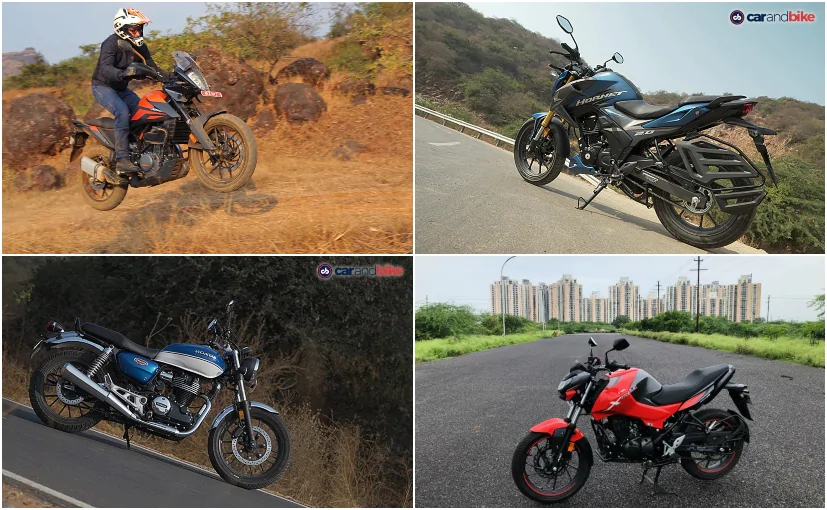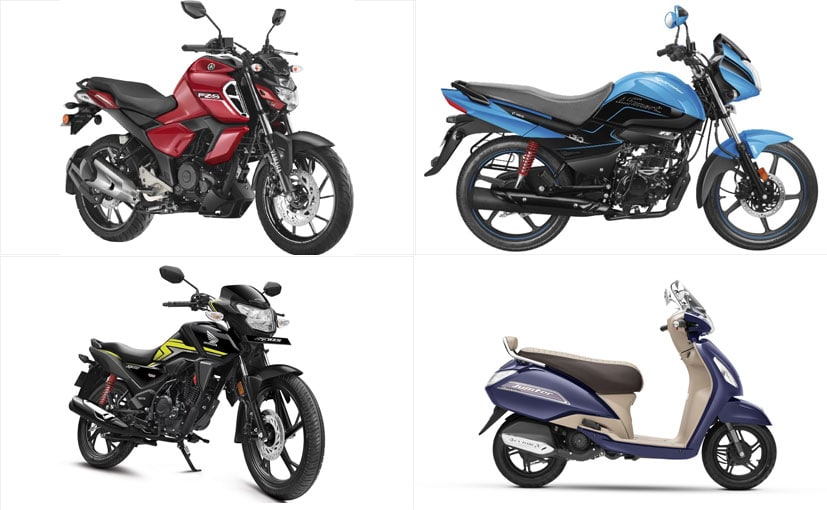Two-Wheeler Manufacturers Looking For GST Rate Relief And EV Incentives

[ad_1]
Finance Minister N Sitharaman is all set to present the Union Budget for FY2021-22 on February 1, 2021 and the auto industry, the two-wheeler sector in particular is looking for some support from the government for the coming year.

Two-wheeler OEMs hope to get relief in form of GST rate reduction and incentives for EVs
The year of 2020 left an unpleasant taste for most of us. The same can be said for the Indian automotive industry, which was already in a decline and with the coming of the COVID-19 pandemic, the situation took a turn for worse. Most two-wheeler manufacturers were able to navigate through the troubled waters last year in the form of the pandemic, BS6 transition and a significant rise in the prices of raw materials. But ,with the Union Budget 2021 on the anvil, are hoping for a relief in GST rates, incentives for EV growth and PLI or production linked incentives.
Also Read: Luxury Carmakers Hope For Stable Policy, Incentives On EVs & Lower Taxes

(Piaggio India CEO & MD Diego Graffi hopes that budget 2021 includes GST rate reduction and support for accelerating EV infrastructure)
Diego Graffi, Chairman and Managing Director, Piaggio India, says, “The Covid-19 pandemic has impacted businesses in India, Auto industry needs big support for recovery. We are hopeful that Union Budget 2021 will bring in effective relief to the auto sector including GST rate consideration to boost the demand and enhance consumer sentiments. We are also hopeful that Budget 2021 will address the key support required to accelerate the EV infrastructure.”
The two-wheeler industry believes that a reduction in GST rates will help in uplifting customer sentiments and boosting sales, especially after many OEMs were forced to implement multiple price hikes throughout 2020, the reasons of which are already listed in the first paragraph.

Also Read: Hero MotoCorps Crosses 100 Million Production Mark
Avik Chattopadhyay, co-founder, Expereal, suggests that a reduction in GST, down to 5 per cent, on entry level two-wheelers along with reduced interest rates for automotive loans could see help the industry to attain pre-COVID levels of performance. He also believes that there should on tax levied on green mobility investments and products and performance linked incentives should percolate down to small and medium scale enterprises in the component sector, in order for the two-wheeler industry to get a boost.

(Tarun Mehta, Co-Founder and CEO, Ather Energy, says that financial institutions should offer different instruments which incentivise EV purchase)
Tarun Mehta, co-founder and CEO, Ather Energy, says, “The introduction of several progressive policies and incentives by the Government like the FAME 2 subsidy and offering income tax rebates on the purchase has led to an increase in consumer demand for electric vehicles in India. We are also witnessing the growth of the EV Industry in terms of companies launching high-quality and well performing new products in the market.

(Few mass market OEMs managed to navigate through troubled waters last year, but in order to truly ocme out of the slump, they are hoping for a good budget)
For manufacturers, one of the key challenges on investments in the sector is the concerns regarding GST inverted duty structure. In order to minimise working capital blockage, the Government should look at extending end use based benefits to the EV industry like lowering GST rates on raw materials, allowing inverted duty refunds for research and development and capital expenditure. Especially for startup’s like ours in their growth phase, offsetting inputs on such major expenses without being GST profitable is a big challenge.”
0 Comments
Mehta also believes that financial institutions should try and offer different, attractive financial offers and instruments in order to incentivise EV purchase. That could play an important role in making EVs more affordable and increase sales.
For the latest auto news and reviews, follow carandbike.com on Twitter, Facebook, and subscribe to our YouTube channel.
[ad_2]
Source link

